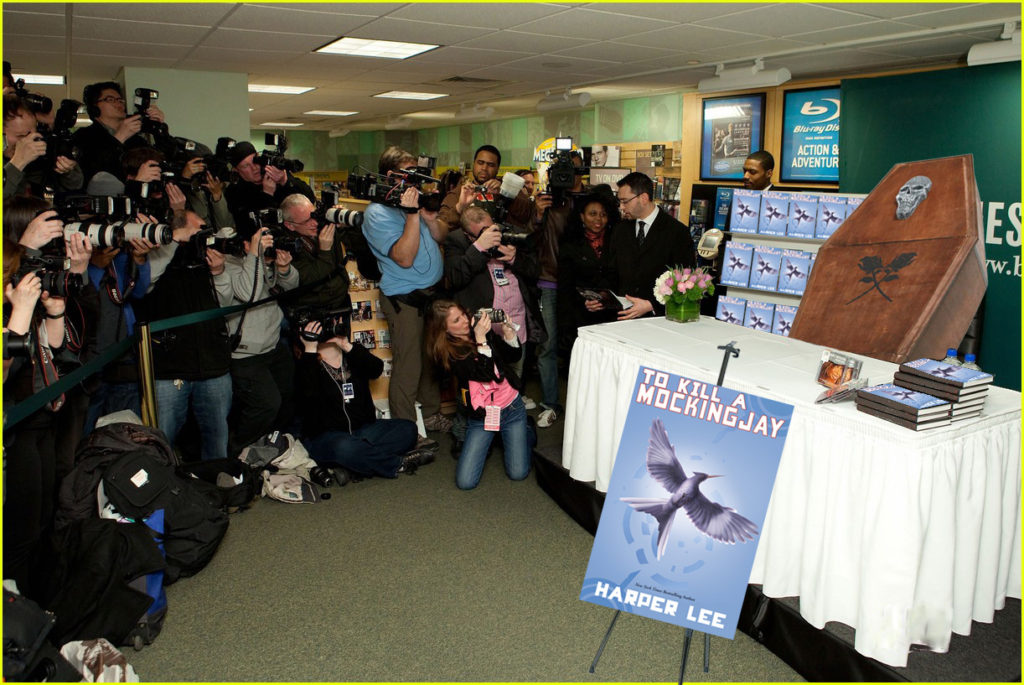
Photo by: Jacob Aguirre
In the wake of the recent passing of Harper Lee, author of the classic novel “To Kill a Mockingbird,” the HarperCollins publishing company announced the discovery of over a dozen previously-unknown “To Kill A Mockingbird”-related manuscripts supposedly written by Lee, which the company plans to publish as a series of individual novels referred to as “Harper Lee: The Lost Chapters: Director’s Cut.” While many are excited for the upcoming release, some have also criticized the move as being disrespectful to Lee’s legacy, with one critic describing it as “taking the metaphorical mockingbird and metaphorically beating it like a metaphorical dead horse.”
In particular, many are suspicious of the circumstances surrounding the announcement, as HarperCollins officially announced the move within 12 hours of Lee’s passing. Some have accused HarperCollins of publishing these manuscripts against Lee’s wishes, which was a similar accusation levied against the publication of “Go Set a Watchman” in 2015. The company has responded to this criticism by insisting that they “received Lee’s consent from the great beyond,” according to the company’s official spirit medium.
Many fans are also worried about how the manuscripts will affect the “To Kill a Mockingbird” continuity, especially after the controversial changes presented in “Go Set a Watchman.” In an official preview of one of the manuscripts, some particularly perceptive fans have noted numerous conflicts in characterization and continuity between the manuscript and the original novel. An analysis by acclaimed literary critic Reed N. Wright noted, “If you look carefully on page 17 of Chapter three of the manuscript, you’ll notice that Scout references wearing a chicken costume, but in ‘To Kill a Mockingbird’ it was pork! Pooork!”
The radical thematic differences in the manuscripts have been a contributing factor to a growing suspicion that the manuscripts may not have been penned by Lee at all. The names and official summaries, including titles such as “Go Set a Mockingbird” and “To Kill a Watchman,” have lent credence to this theory. In particular, much criticism has been directed towards the manuscript titled “To Kill a Mockingjay,” which HarperCollins describes as “The adventures of an adolescent Scout Finch as she fights for her life in a deadly battle royale hosted by the tyrannical post-apocalyptic government of Maycomb, Alabama.”
Despite the growing controversy, HarperCollins has continued to draft new plans to expand the “To Kill a Mockingbird” franchise. An anonymous unofficial spokesman for HarperCollins revealed a coordinated effort with Universal Pictures to produce a “Remastered HD 1080p 60fps 54th Anniversary IMAX Re-release” of the 1962 film adaptation of “To Kill a Mockingbird” this December, “in honor of the ten-month anniversary of Lee’s passing.”
The spokesman also revealed that Ryan Seacrest Productions, producers of “Keeping Up with the Kardashians,” had signed a deal to produce a present-day reality TV version of “To Kill a Mockingbird” called “Following Up with the Finches.” In addition to these unofficial reveals, it is rumored that HarperCollins commissioned a Vietnamese video game developer to create an official “To Kill a Mockingbird” mobile game, called “Flappy Mockingbird.”
Mona E. Turner, HarperCollins’ newly-appointed Chief Mockingbird Affairs Officer and a self-described “Mockingbirdian,” was quick to defend the company’s direction. “I believe it was Atticus Finch who said, ‘You never really understand a person until you consider things from their point of view.’ So look at this from our point of view! Just think about how much money we’re gonna make— I mean, just think about how much justice we’ll be bestowing on Lee’s work! I’d think ol’ Atticus and Ms. Maudie would agree with me when I say that it would be a sin to kill the Mockingbird franchise.”
Chris Jin is a fourth year at UCSD











